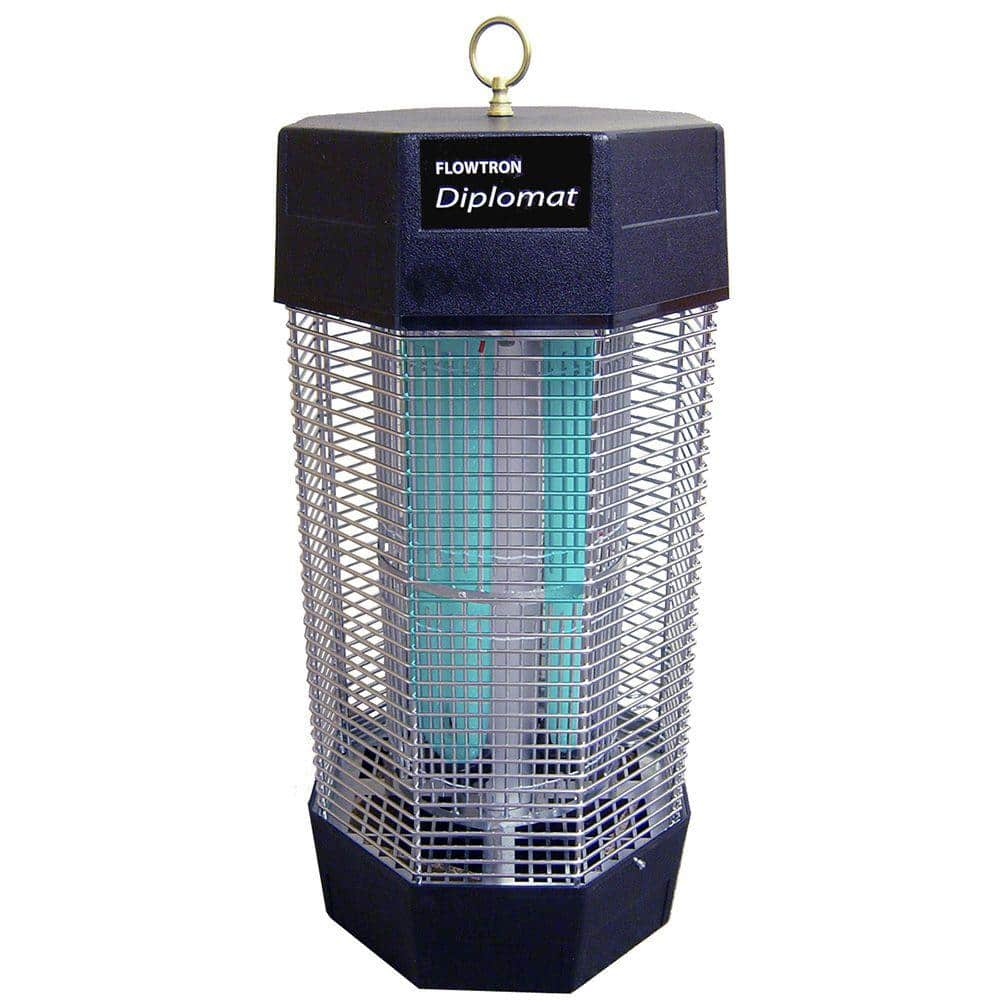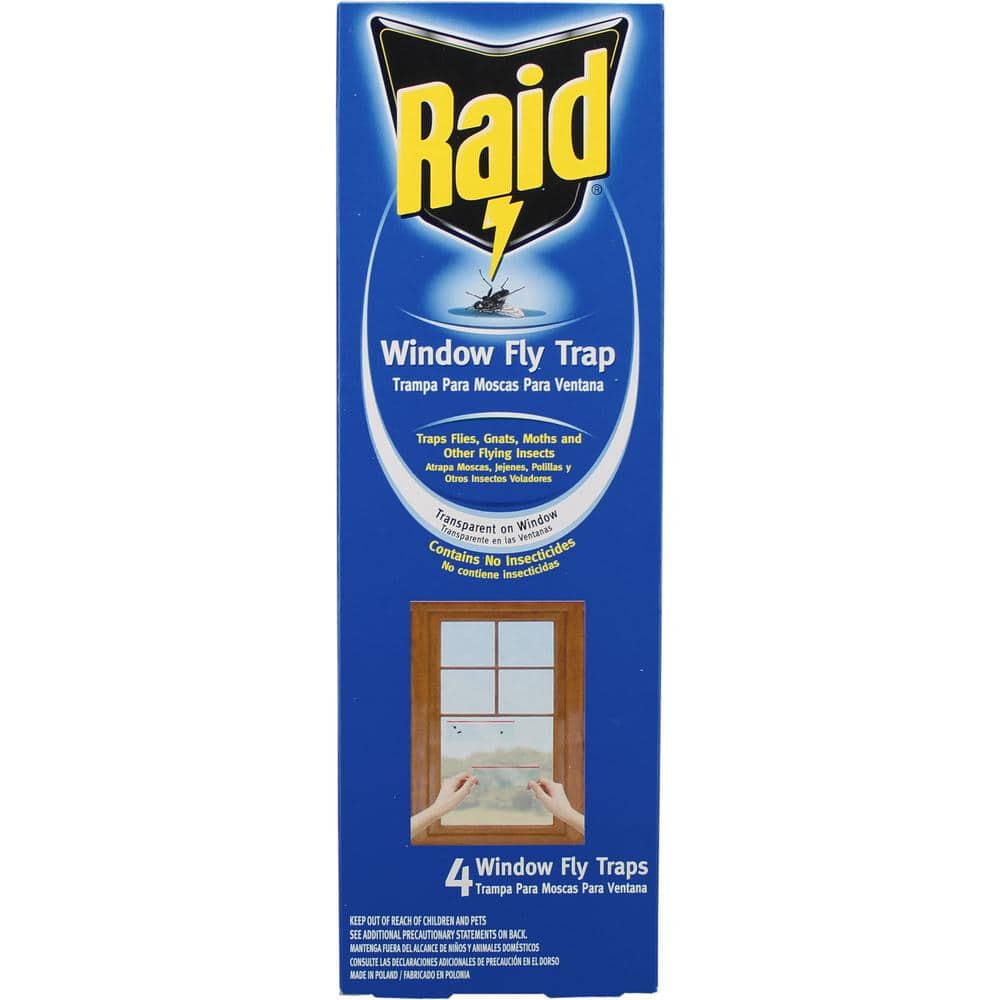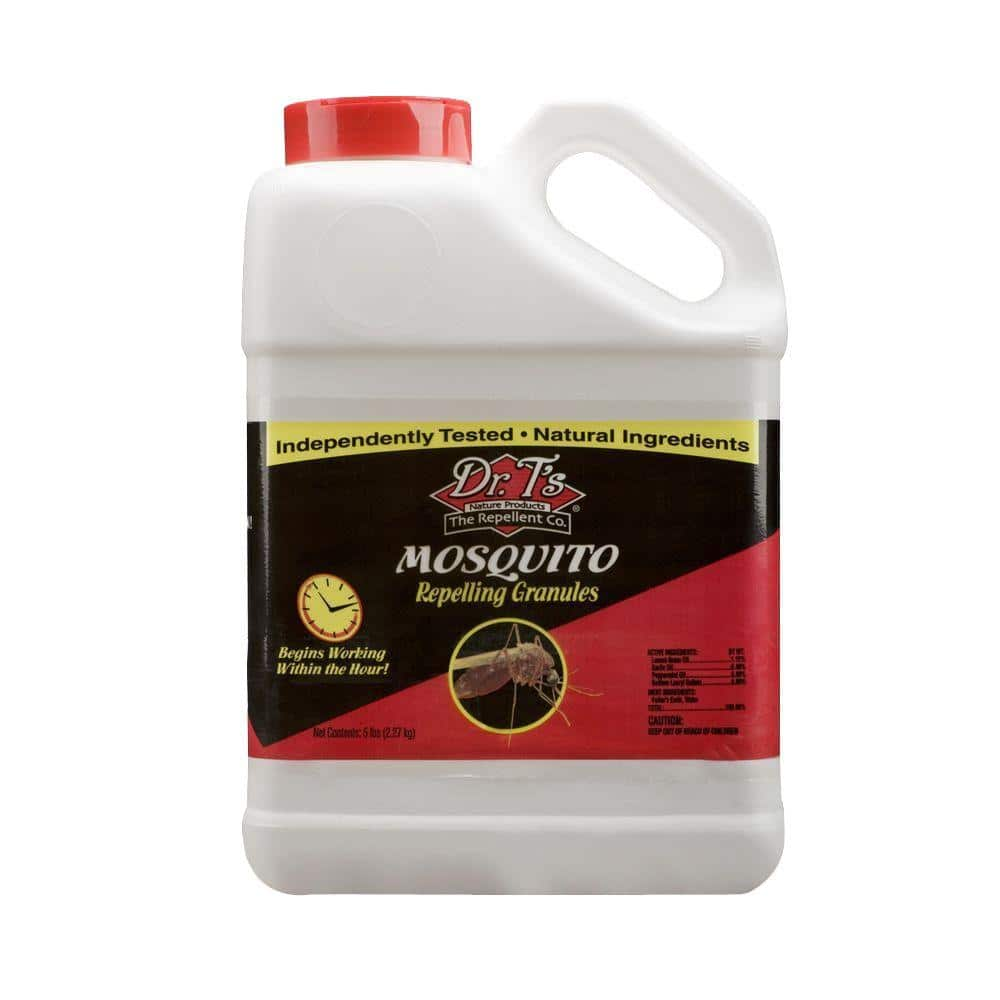How to Get Rid of Fruit Flies

Last updated December 26, 2024
Fruit flies are among the most familiar types of pests that homeowners see. Distinctive bright red eyes and a light yellow to tan body are hallmarks of the fruit fly. At only 1/3 the size of a common house fly, it’s unlikely you'll get close enough to get a good look.
You can be plagued with swarms of fruit flies almost any time of year, but they usually show up late summer to early fall. You can try swatting them, but there are more effective methods for getting rid of fruit flies. Read on for how to kill fruit flies, how to get rid of fruit flies and how to keep your kitchen pest-free.
Table of Contents
What Attracts Fruit Flies
Get Rid of Fruit Flies
Use Natural Scents
Keep a Clean Kitchen
Use DIY Fruit Fly Traps
Preventing Fruit Flies
What Attracts Fruit Flies
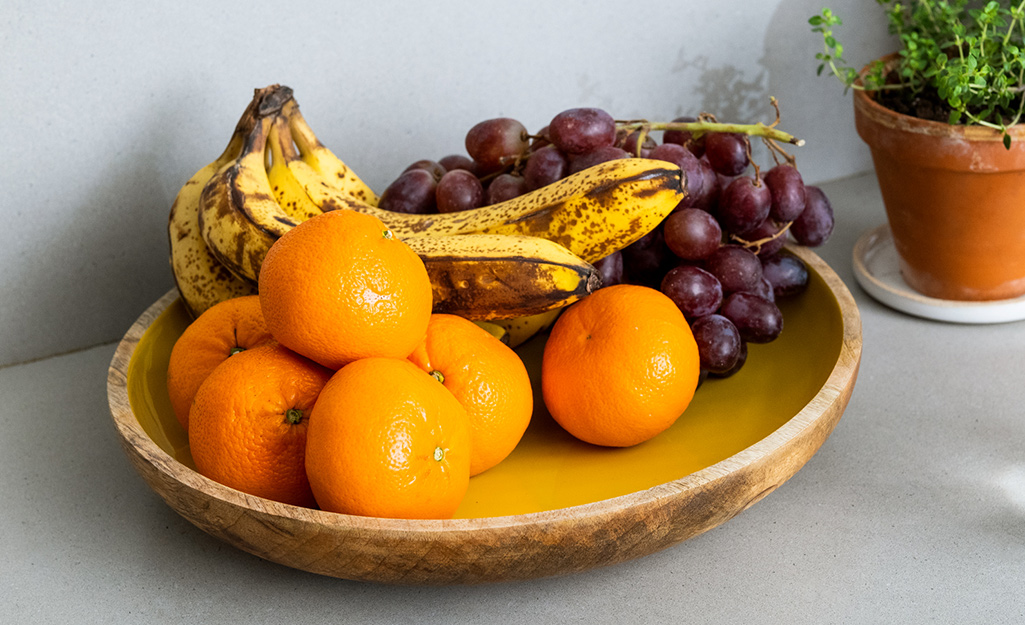
Fruit flies have a powerful sense of smell. They can follow the scent of ripening and decaying fruit over long distances. These pests feed on overripe and rotting fruit and the fermenting sugars in leftover alcoholic or sugary beverages. While fruit flies don't bite, they can contribute to the spread of disease as they frequent trash bins, pet areas and drains in addition to food prep areas.
Fruit flies creep into your home through window screens and small crevices around windows. They can also hitch a ride in the form of eggs laid on the outer skins of fresh fruits and vegetables found in stores and farmers markets. Leverage our expert DIY tips below to get rid of fruit flies in your home once and for all.
Get Rid of Fruit Flies
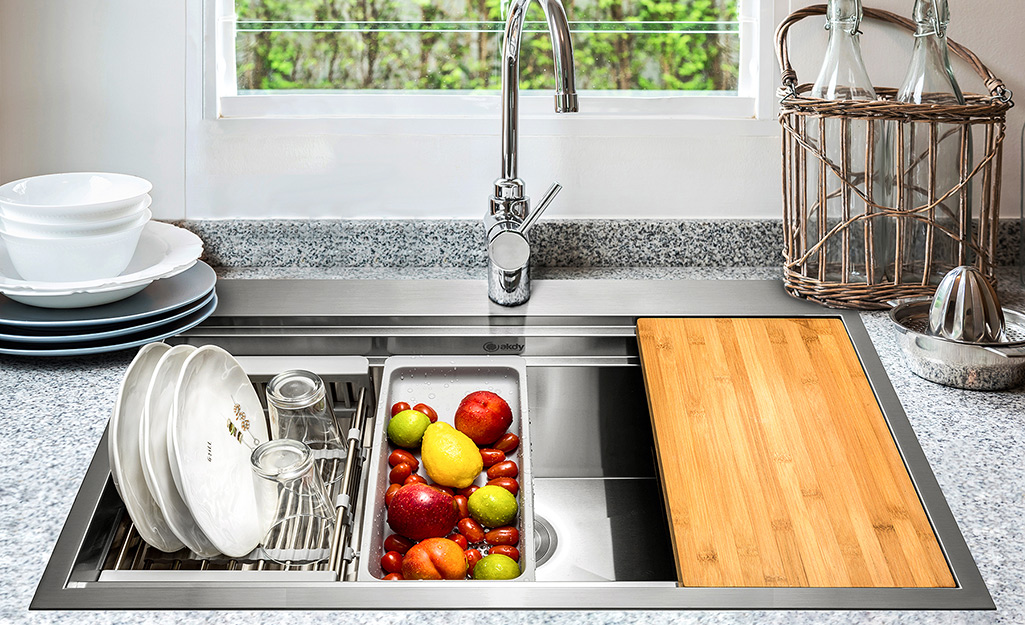
Fruit fly infestations are generally located in and around food prep areas. The best ways to get rid of fruit flies take food contamination into consideration. Deciding how to get rid of fruit flies depends on your preferences. Many people would rather not use sprays and aerosols.
Quick action at the first sight of fruit flies can curb the problem before an infestation gets out of control. Mature female fruit flies can lay up to 500 eggs, which will hatch within 24 to 48 hours. Fruit flies have an 8- to 10-day maturity cycle, from egg to adult. Without intervention, each fly lives for about a month.
Natural bug sprays can quickly end a fruit fly infestation without putting kids, pets or the fruit bowl in harm's way. Attractant baits and fruit fly traps may also offer an easy and non-toxic alternative to get rid of fruit flies. Bug zappers are another alternative.
Use Natural Scents

Fruit flies are drawn toward rotting fruit or fermenting liquids. They are repelled by strong yet pleasant fragrances. Lavender, peppermint, eucalyptus, clove and basil herbs and essential oils can be effective in deterring and preventing fruit flies:
- Place herbal tea bags around your kitchen.
- Add a few drops of essential oils to cotton balls and put them where you’ve seen fruit flies.
- Hang sachets of dried herbs.
Keep a Clean Kitchen
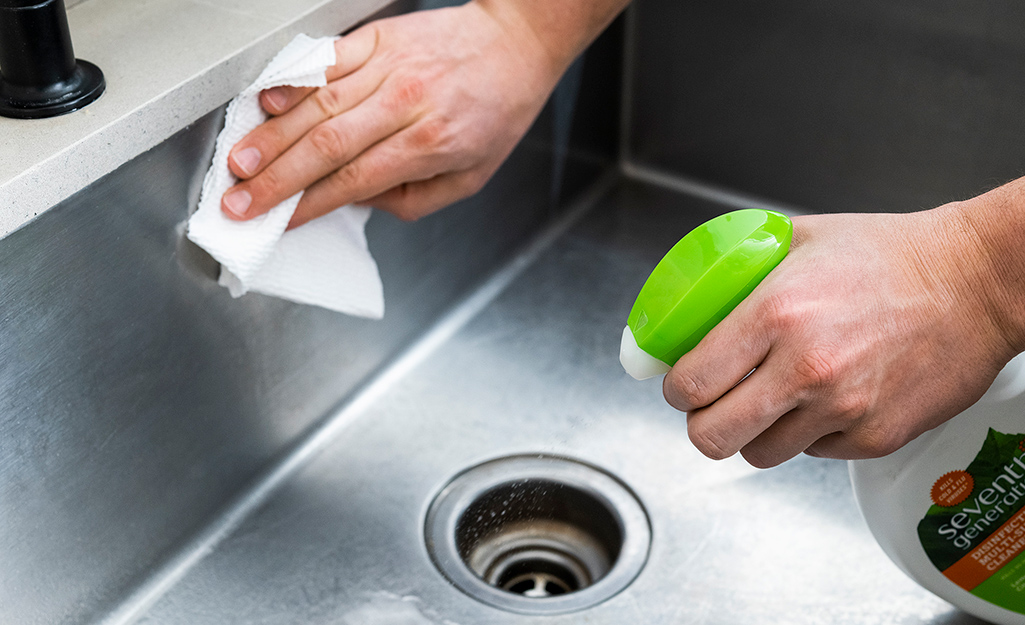
Cut off fruit flies from their food source. Locate and clean potential fruit fly breeding areas. Check drains, underneath appliances, inside the dishwasher or any spot where there is moisture and food debris. Clean them thoroughly with a good all-purpose cleaner.
- Take out the garbage regularly. Empty and scrub trash cans inside and out to remove any old food particles.
- If you are collecting compost material in your kitchen, be sure the receptacle has a tight-fitting lid and is emptied regularly. You may also want to use compostable bin liners to make this easier.
- Change sponges, dishcloths or kitchen towels weekly.
Tip: Pouring bleach down a drain may only kill a few eggs or larvae. Consider using a specialty fruit fly drain cleaner instead.
Use DIY Fruit Fly Traps
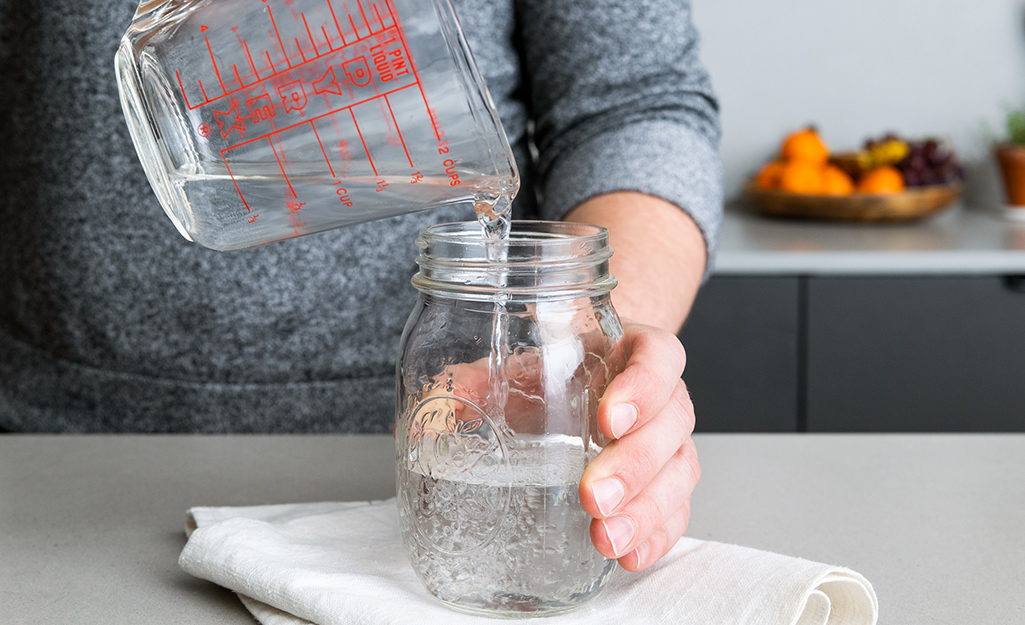
Fruit flies are attracted to the smell of apple cider vinegar, white vinegar, wine or beer. Setting out traps for fruit flies made from these solutions is a natural remedy for these pests. Fruit flies will fall or fly into these traps but then can’t get out. You can buy traps that mimic these smells or make your own. Below are several different types of DIY fruit fly traps you can try. Make several and set them out around the infested area.
- Fill a small jar or bowl with white wine vinegar. Empty and refresh it as needed.
- Open a bottle of apple cider vinegar. Secure plastic wrap tightly over the opening with a rubber band. Poke small holes in the plastic wrap.
- Place a paper cone into a jar with a slice of ripe fruit and a little vinegar in it. The cone will make it easy for the pests to get in but not out.
Tip: Add about three drops of dish soap to your DIY fruit fly traps. It will make them even more effective in trapping pests.
Preventing Fruit Flies
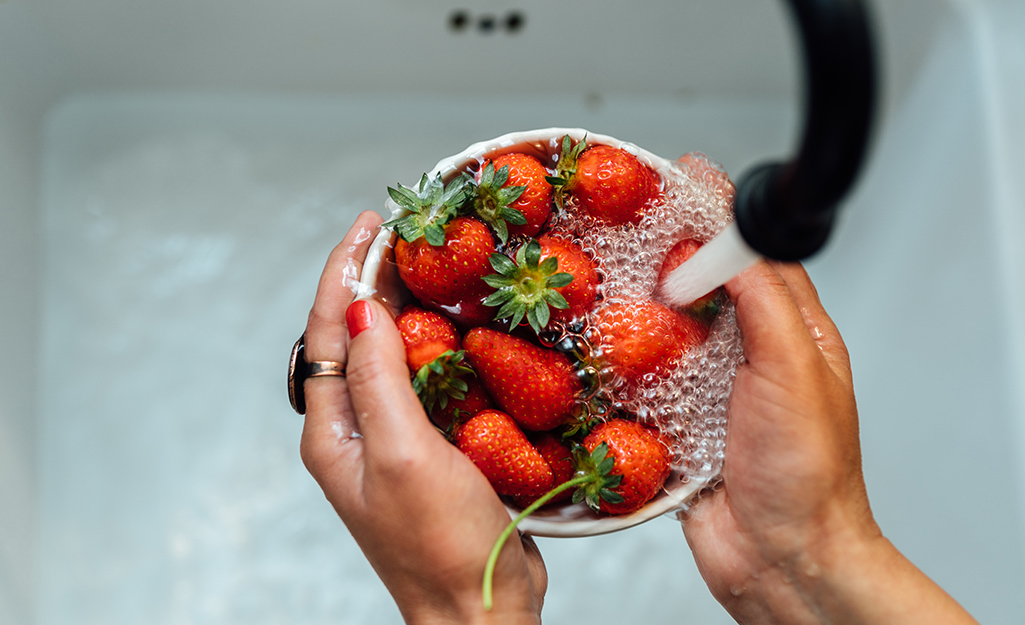
Knowing how to get rid of fruit flies starts with prevention. Take these preventive measures to get rid of fruit flies.
- Wash your produce to remove any fruit fly eggs or larvae.
- Get rid of any overripe produce promptly.
- Clean up fruit juice or alcohol spills promptly.
- Cover fruit bowls. Use plastic wrap or a clear dome. A clean dish towel will do in a pinch.
- Consider storing all produce in the refrigerator, even bananas.
- Don’t leave beer or wine drinks open and out at night. Place any contents into sealed bags and dispose of in an outside trash can. If you are not washing them right away, empty and rinse wine or beer glasses with warm water.
- Prevent fruit flies from entering your home. Check and repair screens and seal around windows.
There are several ways to get rid of fruit flies and prevent them from invading your home. By following these treatments for getting rid of fruit flies, you'll hopefully keep them at bay. Once you've eliminated this pest, continue to use preventative measures such as storing produce in the fridge or using essential oils. Consider keeping a bug spray handy. Ready to get the supplies you need for getting rid of fruit flies? The Home Depot delivers online orders when and where you need them.

